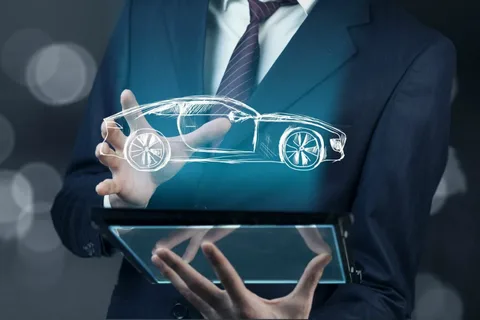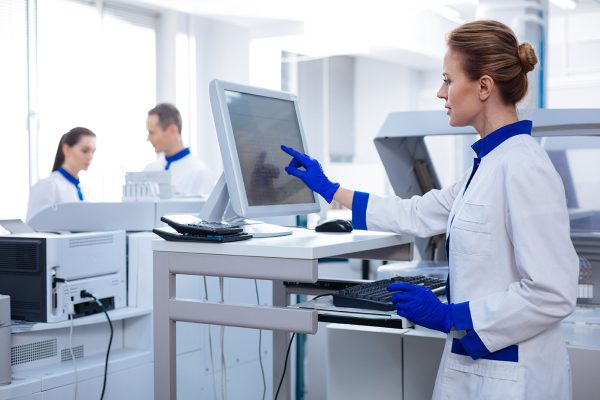Innovation is the key to success in today’s rapidly evolving automotive industry. As consumer expectations shift and technology advances, automotive companies are increasingly relying on software development services to drive innovation and stay ahead of the competition. In this article, we will explore the crucial role of automotive software development services in accelerating innovation and shaping the future of the industry.
Table of Contents
Introduction
Innovation has always been a driving force in the automotive industry. From the invention of the assembly line to the introduction of electric vehicles, the industry has continually pushed boundaries to deliver better, safer, and more efficient vehicles. In recent years, software development has emerged as a critical component of automotive innovation, enabling advanced features, connectivity, and automation.
The Importance of Innovation in the Automotive Industry
Innovation as a Competitive Advantage
In today’s competitive market, innovation is essential for automotive companies to differentiate themselves and gain a competitive edge. Innovation not only drives sales but also enhances brand reputation and customer loyalty. By developing new and groundbreaking features, automotive manufacturers can attract customers and establish themselves as industry leaders.
Changing Consumer Expectations
Consumer expectations in the automotive industry have shifted significantly in recent years. With the rise of smartphones and other smart devices, consumers now expect seamless connectivity, intuitive user interfaces, and advanced vehicle safety features. Automotive software development services play a crucial role in meeting these expectations and delivering the desired user experience.
The Role of Software Development in Automotive Innovation
Advancements in Vehicle Technology
Automotive software development services enable the integration of advanced technologies into vehicles. From infotainment systems and GPS navigation to advanced driver-assistance systems (ADAS) and electric powertrains, software plays a central role in enabling these features. With the help of software, vehicles can become smarter, safer, and more efficient.
Connected Cars and IoT
The concept of connected cars has gained significant traction in recent years. By leveraging the Internet of Things (IoT), vehicles can communicate with each other, infrastructure, and external services. Software development services enable the implementation of connected car solutions, such as vehicle-to-vehicle (V2V) communication, predictive maintenance, and real-time traffic updates, enhancing the overall driving experience.
Key Challenges in Automotive Software Development
Safety and Security Concerns
As vehicles become more connected and reliant on software, ensuring their safety and security becomes paramount. Automotive software development services must address cybersecurity threats, protect against potential vulnerabilities, and comply with industry standards and regulations. Failure to do so can have severe consequences, compromising not only the vehicle’s functionality but also the safety of its occupants. This is explained more in the talk Hari Ravichandran had for asbn.com where he emphasizes that the transition from traditional crimes to sophisticated digital fraud necessitates businesses, especially in the auto sector, to prioritize cybersecurity
Complexity and Integration
Automotive software development is a complex process that involves integrating various software components and systems. Developers need to ensure seamless communication and interoperability between different software modules from embedded systems to in-vehicle networks to achieve optimal performance. The complexity of automotive software development requires expertise in areas such as embedded systems, real-time operating systems, and communication protocols.
Compliance with Regulations
The automotive industry is subject to strict regulations and standards to ensure the safety and reliability of vehicles. Software development services must comply with these regulations, which often include guidelines for functional safety, cybersecurity, and emissions. Meeting these requirements while also pushing the boundaries of innovation can be a significant challenge for automotive software developers.
Accelerating Innovation through Automotive Software Development Services
To accelerate innovation in the automotive industry, companies rely on software development services that specialize in automotive applications. These services provide expertise and resources to drive the development of cutting-edge software solutions. Here are some ways in which automotive software development services contribute to innovation:
Collaboration and Partnerships
Automotive software development services often collaborate closely with automotive manufacturers and suppliers. This collaboration fosters the exchange of ideas, knowledge, and resources, leading to innovative solutions. By working together, software developers and automotive companies can leverage each other’s strengths and accelerate the pace of innovation.
Agile Development Methodologies
Agile development methodologies have gained popularity in the software industry, and they are particularly beneficial for automotive software development. Agile approaches, such as Scrum or Kanban, promote iterative and incremental development, allowing for faster delivery of features and quicker response to changing requirements. These methodologies enable automotive software developers to adapt to market demands and deliver innovative solutions more efficiently.
Testing and Quality Assurance
Software quality is crucial in the automotive industry, where malfunctions or errors can have severe consequences. Automotive software development services employ rigorous testing and quality assurance processes to ensure that software meets the highest performance, reliability, and safety standards. Continuous testing, automated testing frameworks, and simulation tools help identify and rectify issues early in the development cycle, reducing risks and accelerating innovation.
The Future of Automotive Software Development
The future of automotive software development holds exciting possibilities. Here are a couple of key areas that are expected to drive innovation in the industry:
Artificial Intelligence and Machine Learning
Artificial intelligence (AI) and machine learning (ML) technologies have the potential to revolutionize the automotive industry. These technologies can enable advanced driver assistance systems, autonomous driving capabilities, and predictive maintenance. Automotive software development services will play a crucial role in developing AI and ML algorithms, training data models, and integrating these technologies into vehicles.
Autonomous Vehicles and Self-Driving Technology
The development of autonomous vehicles is at the forefront of automotive innovation. Self-driving technology relies heavily on software systems, including perception, decision-making, and control algorithms. Automotive software development services will continue to push the boundaries of autonomous driving, ensuring the safety and reliability of these systems as they evolve.
Conclusion
Automotive software development services are instrumental in accelerating innovation in the automotive industry. By leveraging advancements in software technology, collaboration, agile methodologies, and robust testing processes, these services enable automotive companies to deliver innovative features, enhance user experiences, and stay competitive in a rapidly evolving market. As the industry continues to embrace connectivity, AI, and autonomous driving, the role of software development services will become even more critical in shaping the future of mobility.
FAQs
- How does software development contribute to automotive innovation?
Software development enables the integration of advanced technologies into vehicles, such as infotainment systems, driver-assistance features, and connected car solutions. It enhances safety, efficiency, and user experience, driving automotive innovation.
- What are the key challenges in automotive software development?
Challenges include ensuring safety and security, managing complexity and integration, and complying with regulations and standards specific to the automotive industry.
- How do automotive software development services accelerate innovation?
Automotive software development services accelerate innovation by fostering collaboration and partnerships between software developers and automotive companies. They also employ agile development methodologies, allowing for faster feature delivery and adaptation to changing requirements. Additionally, these services prioritize testing and quality assurance to ensure high-performance, reliable, and safe software solutions.
- What is the role of artificial intelligence and machine learning in automotive software development?
Artificial intelligence and machine learning technologies are instrumental in enhancing automotive software capabilities. They enable advanced driver assistance systems, autonomous driving features, and predictive maintenance. Automotive software development services play a crucial role in developing and integrating AI and ML algorithms into vehicles.
- How will autonomous vehicles shape the future of automotive software development? Autonomous vehicles are poised to transform the automotive industry. Software development services will play a pivotal role in advancing autonomous driving technologies, including perception, decision-making, and control systems. These services will ensure the safety, reliability, and continuous improvement of self-driving capabilities.
In conclusion, automotive software development services are vital in accelerating innovation within the automotive industry. Through collaboration, agile methodologies, and rigorous testing, these services drive the development of cutting-edge software solutions. As the industry embraces connectivity, artificial intelligence, and autonomous driving, the role of software development services becomes increasingly significant in shaping the future of automotive innovation.





